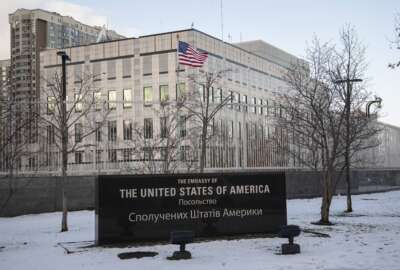Federal institutional strength: no baloney
Rule of law is most important when confronted with lawlessness, small or massive.
It was just one of a couple of dozen press releases from U.S. Customs and Border Protection each week. In them, CPB briefly describes the seemingly endless seizures of illicit goods people try to smuggle into the U.S., as well as the arrests of an endless parade of convicted thieves, sex offenders and human traffickers.
In this particular instance, agents discovered two separate attempts to bring in prohibited pork bologna. As a fresh, more-or-less, agricultural product, it’s not allowed. The two seizures amounted to a couple of hundred pounds of the stuff. From the picture, it looked like a perfectly legal product for Mexico, nice pink logs in graphically decorated shrink wrap, just like in your local deli case. Likely they would have ended up in bodegas or restaurants not far from the border, no real harm done.
But who knows what microorganisms the bologna might have harbored? That’s why we have these laws, and the bologna went into an incinerator.
You can almost imagine the agents shrugging, and saying, why bother with a couple of small loads of lunch meat when there’s so much else going on? One answer: If you let this in, then why not that small potted plant with its foreign dirt? Pretty soon, you allow bologna and foreign soil in. It’s like my diet rule of bread only on the weekends. But if I sneak a slice of cinnamon toast on Tuesday, and a half a bagel Thursday, pretty soon I eat bread all week.
In their own way, perhaps not even consciously, those CBP agents were not only preventing a potential health problem, but also maintaining the integrity of the institution itself, of the rule of law.
Consider this if you think you’ve got a tough job: Later, agents stopped a man trying to smuggle 43 horned lizards and nine snakes in his luggage.
Integrity adds up to governments and nations. From the Torah to the Code of Hammurabi to the Magna Carta down to the U.S. Constitution, the great thinkers understood why the rule of law is necessary for both orderly and just societies. That extends to how nations treat one another. Now many people are walking around in a state of outrage over the Ukraine situation. Outrage is typically a cheap commodity, but in this case it’s widespread and justified by the bald-faced illegality of it.
Secretary of State Antony Blinken was talking at the embassy in Moldova the other day, a country that worries it could be next. Blinken said something routine but also right on the money: “What Russia is doing, what Vladimir Putin is doing, is not only terrible violence to men, women, and children. He’s doing terrible violence to the very principles that lie beneath that order and are working to keep peace and security around the world. And, simply put, we can’t let either of those things go forward with impunity, because if we do, it opens a Pandora’s box that we will deeply, deeply regret not just in Europe but potentially around the world.”
It feels a little frustrating that we don’t release the full might and fury of the U.S. military and NATO allies to flatten those Russian forces now battering Ukraine. It’s a common default thought. Aside from the logistic and results uncertainties of such an action, and the repercussions, it would also occur outside of legal and institutional norms. Such a response would be the opposite of what Putin is doing, driven by whatever delusional ravings motivate the man.
The CBP agents didn’t force the deli men to eat their bologna or tie it around their necks and make them walk around with it for two days in the sun. They disposed of it, and fined the would-be smugglers. It is when confronted with audacious lawlessness, whether lunch meat or invasion of an innocent nation, that the strength of law within our own institutions is most important.
Copyright © 2024 Federal News Network. All rights reserved. This website is not intended for users located within the European Economic Area.
Tom Temin is host of the Federal Drive and has been providing insight on federal technology and management issues for more than 30 years.
Follow @tteminWFED







